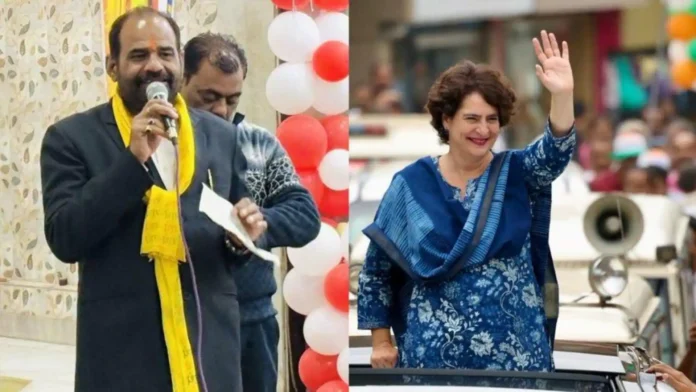January 5, 2025: Supriya Shrinate’s sharp criticism of BJP candidate Ramesh Bidhuri’s controversial remarks about Priyanka Gandhi highlights the ongoing political and social tensions surrounding issues of gender and respect in Indian politics. Shrinate’s accusations not only point to the specific incident involving Bidhuri’s comment about Priyanka Gandhi but also to a broader pattern that she believes the BJP fosters within its ranks—what she calls an “anti-women” mindset. Her use of terms like “shameful” and “disgusting” clearly reflects her outrage over the comment, and she is drawing attention to a broader issue of sexism and misogyny that can sometimes surface in political discourse.
The remark in question—shared in a video by AAP MP Sanjay Singh—appears to be a crude and inappropriate reference that, in Shrinate’s view, reveals the mindset of BJP leadership. By invoking the example of Bidhuri’s earlier use of foul language against a fellow MP without facing punishment, Shrinate seeks to frame the BJP’s response (or lack thereof) as part of a larger issue of accountability, particularly in the case of comments or actions that are discriminatory or disrespectful to women.
Shrinate’s call for action is directed not only at Ramesh Bidhuri but also at BJP’s leadership, especially women leaders like Women Development Minister Smriti Irani and BJP President JP Nadda. She questions their silence and calls for them to publicly denounce such remarks, framing this as a test of the BJP’s commitment to women’s rights and dignity in politics. By also addressing Prime Minister Narendra Modi, Shrinate is attempting to make this an issue that transcends individual accountability, aiming for a broader public reckoning within the party.
This issue has the potential to ignite further debate on the treatment of women in Indian politics, and Shrinate’s demand for an apology from the BJP underscores the growing importance of holding political leaders accountable for their language and behavior. In this context, the incident could serve as a rallying point for the opposition to continue highlighting the gender dynamics at play in the BJP’s leadership and campaign strategy.
The fallout from such remarks is likely to have ripple effects in the upcoming Delhi Assembly elections, as both parties will likely use this controversy to score political points, especially with voters who are concerned about gender equality and respect in political discourse.


